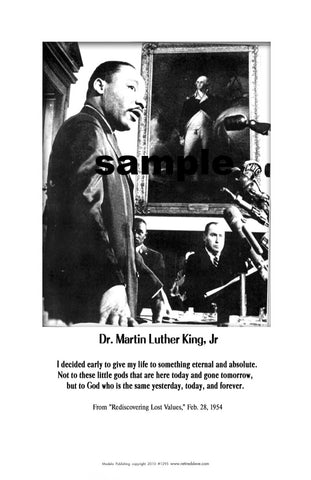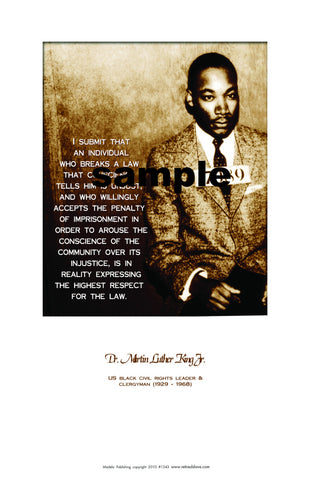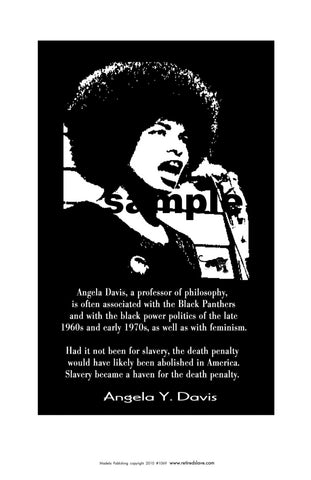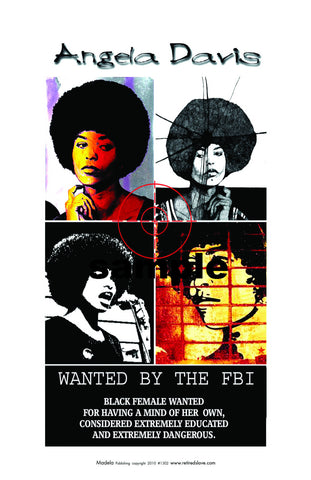NAACP 100 YEARS OF HISTORY #1651
$ 8.00
Caption from poster__
NAACP 100 YEARS OF HISTORY
Founded Feb. 12. 1909, the NAACP is the nation's oldest, largest
and most widely recognized grassroots-based civil rights organization.
Its more than half-million members and supporters throughout the
United States and the world are the premier advocates for civil
rights in their communities, campaigning for equal opportunity and conducting voter mobilization. The NAACP was formed partly in
response to the continuing horrific practice of lynching and the
1908 race riot in Springfield, the capital of Illinois and resting
place of President Abraham Lincoln. Appalled at the violence
that was committed against blacks, a group of white liberals
that included Mary White Ovington and Oswald Garrison Villard,
both the descendants of abolitionists, William English Walling
and Dr. Henry Moscowitz issued a call for a meeting to discuss
racial justice. Some 60 people, seven of whom were African
American (including W. E. B. Du Bois, Ida B. Wells-Barnett
and Mary Church Terrell), signed the call, which was released
on the centennial of Lincoln's birth.
Established by the NAACP in 1916 to develop an effective program
to stamp out lynching, the Anti-lynching Committee developed legislative
and public awareness campaigns. In 1919 the NAACP published Thirty
Years of Lynching in the United States, 1889-1918. This report indicated
that 3,224 people were lynched in the thirty-year period. Of these, 702
were white and 2,522 black. Among the justifications given for the
lynchings were petty offenses such as "using offensive language, refusal
to give up land, illicit distilling."
The Committee also compiled lynching statistics in 1921. It took full-page
advertisements on November 23, 1922, in The New York Times, The
Atlanta Constitution, and several other leading newspapers entitled "The
Shame of America," with the subheading "3436 People Lynched 1889 to
1922." Attempts were made to pass a federal anti-lynching by Senators
Robert F. Wagner and Edward P. Costigan. The Costigan-Wagner bill
would have required local authorities to protect prisoners from lynch mobs.
The proposed bill, which would have made lynching a federal crime rather
than a state crime, was blocked by a filibuster to prevent a vote. Although
lynching never became a federal crime, the song “Strange Fruit” and the
“A Man Was Lynched Yesterday” flags made it nearly impossible for
Americans and politicians to ignore this form of domestic terrorism.
On June 13, 2005, the UnitedStates Senate formally apologized for its
failure to enact a federal anti-lynching law. The Resolution expresses
"the deepest sympathies and most solemn regrets of the Senate to the
descendants of victims of lynching, the ancestors of whom were deprived
of life, human dignity and the constitutional protections accorded all
citizens of the United States."




